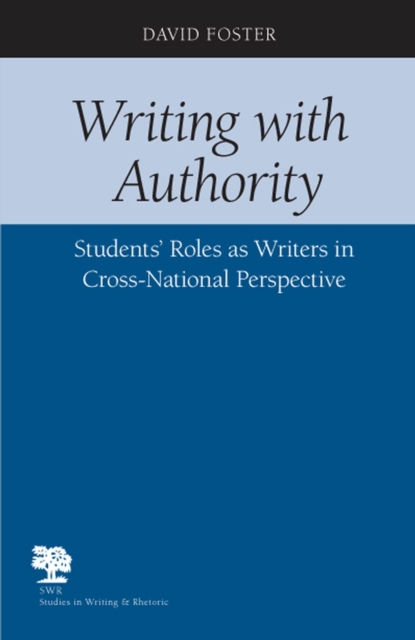
Writing with Authority : Students' Roles as Writers in Cross-national Perspective Paperback / softback
by David Foster
Edited by Robert Brooke
Part of the Studies in Writing and Rhetoric series
Paperback / softback
Description
Writing with Authority: Students' Roles as Writers in Cross-National Perspective offers a comparison of student writers in two university cultures - one German and one American - as the students learn to connect their writing to academic content.
David Foster demonstrates the effectiveness of using cross-cultural comparisons to assess differences in literacy activities and suggests teaching approaches that will help American students better develop their roles as writers in knowledge-based communities.
He proposes that American universities make stronger efforts to nurture the autonomy of American undergraduates as learner-writers and to create apprenticeship experiences that more closely reflect the realities of working in the academic community.
This comparative analysis identifies crucial differences in the ways German and American students learn to become academic writers, emphasizing two significant issues: the importance of self-directed, long-term planning and goal setting in developing knowledge-based projects and the impact of time structures on students' writing practices.
Foster suggests that students learn to write as knowledge makers, using cumulative, recursive task development as reflexive writing practices.
He argues for the full integration of extended, self-managed, knowledge-based writing tasks into the American undergraduate curriculum from the onset of college study.
A cross-national perspective offers important insights into the conditions that influence novice writers, Foster says, including secondary preparations and transitions to postsecondary study.
Foster proposes that students be challenged to write transformatively - to master new forms of authorship and authority based on self-directed planning, researching, and writing in specific academic communities.
The text also addresses contested issues of power relations in students' roles as academic writers and their perception of personal authority and freedom as writers.
A course model incorporates significant, self-directed writing projects to help students build sustainable roles as transformative writers, outlines ""change goals"" to help teachers develop curricular structures that support cumulative writing projects across the undergraduate curriculum, and shows how teachers can develop self-directed writing projects in a variety of program environments.
Information
-
Out of Stock - We are unable to provide an estimated availability date for this product
- Format:Paperback / softback
- Pages:208 pages, 9 illustrations
- Publisher:Southern Illinois University Press
- Publication Date:30/06/2006
- Category:
- ISBN:9780809327089
Information
-
Out of Stock - We are unable to provide an estimated availability date for this product
- Format:Paperback / softback
- Pages:208 pages, 9 illustrations
- Publisher:Southern Illinois University Press
- Publication Date:30/06/2006
- Category:
- ISBN:9780809327089










